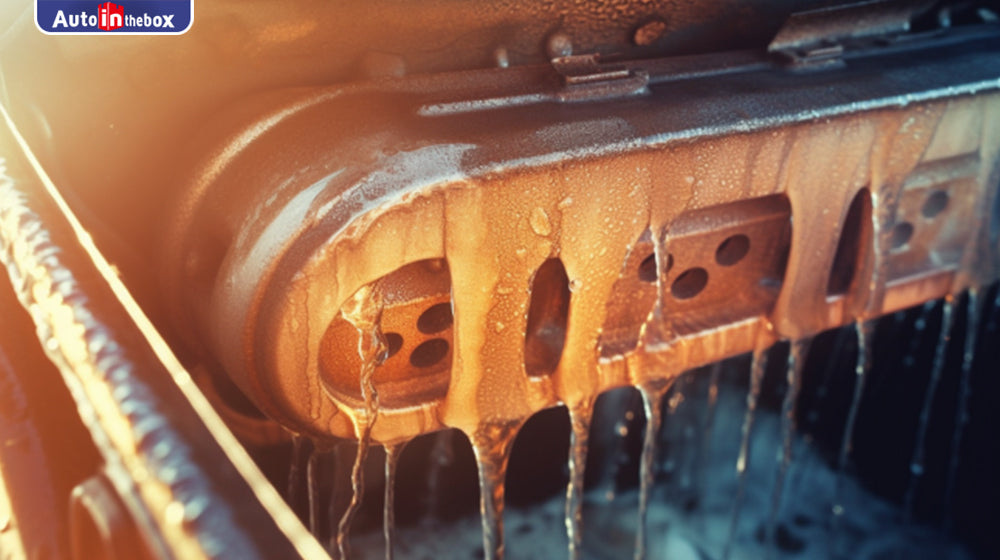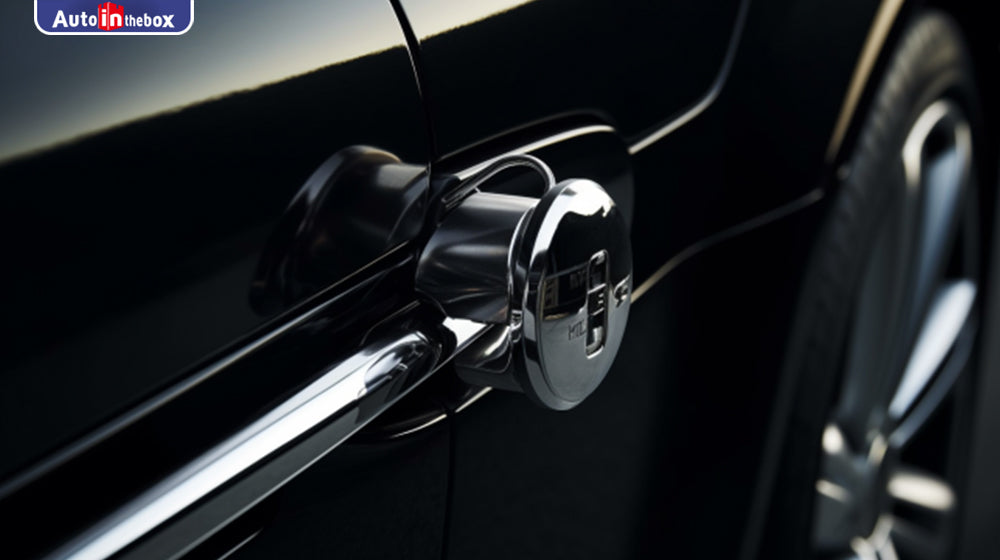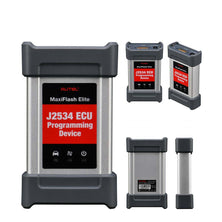
Radiator Leaks? How to Fix?
Radiator Leaks refer to the problem of coolant or antifreeze fluid escaping from the radiator of a vehicle's cooling system. This can occur due to high temperature-induced pressure, wear and aging of seals, or inadequate preventive maintenance. Signs of radiator leaks include coolant loss, increased engine temperature, and evidence of water stains or corrosion. Repair options range from temporary fixes with sealants or patches to replacing seals or the entire radiator. Radiator leaks can lead to engine overheating, fire hazards, and water pump failure. Preventive measures include regular inspections and maintenance to promptly identify and address potential leaks.
Recommended 2023 top car diagnostic tool:Autel IM608II,Launch pro5,Launch IMMO elite,Launch PADVII
Promptly addressing these signs and symptoms of radiator leaks is crucial to prevent engine damage and ensure the vehicle's safe operation.
Remember, it is essential to address radiator leaks promptly to prevent engine overheating and potential damage.
It is crucial to address radiator leaks promptly to mitigate these hazards and prevent further damage to the vehicle's engine and associated components. Regular maintenance and inspections are essential to detect and repair leaks early, ensuring the cooling system's proper functioning and the vehicle's overall safety.
By implementing these preventive measures, you can reduce the likelihood of radiator leaks and ensure the optimal performance and longevity of your vehicle's cooling system. Regular maintenance, inspections, and timely repairs are crucial to preventing radiator leaks and avoiding costly engine damage.
Recommended 2023 top car diagnostic tool:Autel IM608II,Launch pro5,Launch IMMO elite,Launch PADVII
Causes of Automotive Radiator Leaks:
- High temperature and pressure: The radiator operates under high temperatures, causing metal expansion and potential leaks due to increased stress.
- Wear and aging of seals: Over time, the seals within the radiator can deteriorate, leading to leaks. Continuous use and lack of maintenance accelerate this wear and aging process.
- Corrosion: Corrosive elements in the coolant or external factors can cause deterioration in the radiator, weakening its structure and creating leakage points.
- Physical damage: Accidents, impacts, or debris hitting the radiator can result in punctures or cracks, causing coolant to leak out.
- Poor installation or maintenance: Improper installation of the radiator or neglecting regular maintenance, such as flushing and replacing coolant, can contribute to leaks over time.
- Manufacturing defects: In rare cases, manufacturing defects in the radiator, such as faulty welds or poor-quality materials, can lead to leaks.
Signs and Symptoms of Automotive Radiator Leaks:
- Coolant loss: One of the primary indications of a radiator leak is a noticeable decrease in coolant levels. You may need to refill the radiator or coolant reservoir more frequently than usual.
- Engine overheating: Radiator leaks can compromise the cooling system's efficiency, leading to inadequate heat dissipation and subsequent engine overheating. Monitoring the engine temperature gauge is crucial to identify this symptom.
- Visible coolant stains or puddles: A leaking radiator can leave behind visible coolant stains or puddles underneath the vehicle, particularly near the front or center of the engine compartment.
- Sweet or chemical odor: The distinctive sweet smell of coolant or chemical incense may be present inside or outside the vehicle when a radiator leaks. This odor is often a result of coolant evaporating or being dispersed by the engine's heat.
- Steam or smoke from the engine bay: In more severe cases, radiator leaks can cause steam or smoke to emit from the engine bay due to the hot coolant coming into contact with engine components.
- Fluctuating temperature gauge: If the temperature gauge on the dashboard frequently fluctuates or shows inconsistent readings, it could indicate a radiator leak affecting the cooling system's functionality.
Promptly addressing these signs and symptoms of radiator leaks is crucial to prevent engine damage and ensure the vehicle's safe operation.
Methods to Address Automotive Radiator Leaks:
- Temporary sealants: Quick sealants or radiator stop leak additives can be used as a short-term solution for small radiator leaks. These products are designed to seal small cracks or leaks in the radiator and prevent coolant from escaping.
- Patching: If the leak is isolated and accessible, a suitable patching material, such as epoxy putty, can provide a temporary fix. The patch should be applied to the affected area following the product instructions.
- Seal or gasket replacement: If the radiator leak is due to worn or damaged seals or gaskets, it is recommended to replace them. This involves removing the radiator, disassembling it, and replacing the faulty seals or gaskets with new ones. It is crucial to use the correct replacement parts for a proper seal.
- Radiator repair: In some cases, radiator repair shops can fix leaks by soldering or welding the affected areas. This method suits larger or more complex leaks that cannot be easily repaired with sealants or patches.
- Radiator replacement: If the radiator is severely damaged, has extensive corrosion, or has multiple leaks, it may be necessary to replace the entire radiator. A new radiator should be properly installed, ensuring all connections, hoses, and clamps are secure.
- Professional assistance: If you are unsure about the severity of the radiator leak or lack experience in automotive repairs, it is advisable to seek professional help from a qualified mechanic or radiator specialist. They can diagnose the issue accurately and recommend the most suitable repair method.
Remember, it is essential to address radiator leaks promptly to prevent engine overheating and potential damage.
Hazards and Consequences of Automotive Radiator Leaks:
- Engine overheating: Radiator leaks can lead to a significant loss of coolant, disrupting the cooling system's ability to regulate engine temperature. As a result, the engine may overheat, which can cause severe damage to engine components, such as the cylinder head, gaskets, or pistons.
- Increased risk of engine failure: When the engine operates at high temperatures due to radiator leaks, the risk of engine failure or breakdown significantly increases. Continuous overheating can cause internal engine components to warp, seize, or damage beyond repair.
- Fire hazards: If the leaked coolant comes into contact with hot engine parts or electrical components, it can ignite and pose a fire hazard. This can lead to significant damage to the vehicle and potential harm to the occupants and surrounding property.
- Coolant contamination: Radiator leaks can introduce contaminants into the coolant, such as air, debris, or external substances. Contaminated coolant can lose its effectiveness in heat transfer and corrosion prevention, potentially damaging the radiator and other cooling system components.
- Water pump failure: A compromised cooling system due to radiator leaks can put additional strain on the water pump. The water pump is responsible for circulating coolant through the engine. If it fails due to excessive heat or decreased coolant levels, it can result in engine overheating and further complications.
- Costly repairs: Ignoring or delaying the restoration of radiator leaks can result in more extensive damage to the engine and cooling system. This can lead to expensive repairs or even the need for a complete engine replacement, adding significant financial burden and inconvenience.
It is crucial to address radiator leaks promptly to mitigate these hazards and prevent further damage to the vehicle's engine and associated components. Regular maintenance and inspections are essential to detect and repair leaks early, ensuring the cooling system's proper functioning and the vehicle's overall safety.
Preventive Measures for Automotive Radiator Leaks:
- Regular maintenance: Follow the manufacturer's recommended maintenance schedule for your vehicle, including routine inspections of the cooling system. Regular maintenance allows for the early detection of potential issues, such as radiator leaks, and facilitates timely repairs.
- Coolant system checks: Regularly check the coolant level and quality. Ensure the coolant is at the appropriate level and mix ratio as specified in the vehicle's owner manual. If the coolant appears discolored, contaminated, or diluted, it may be necessary to flush and replace it.
- Inspect radiator hoses and connections: Inspect the radiator hoses, clamps, and links for any signs of wear, cracks, or leaks. Replace worn-out hoses or damaged clamps promptly to prevent coolant leaks.
- Avoid overheating: Preventing excessive engine temperatures can help reduce the likelihood of radiator leaks. Avoid prolonged idling, regularly monitor the temperature gauge, and promptly address any signs of overheating, such as coolant loss or increased temperature readings.
- Protect against corrosion: Use the recommended coolant or antifreeze that contains corrosion inhibitors. These additives help prevent rust and corruption within the radiator and cooling system. Additionally, avoid mixing different types of coolant, as it can compromise their effectiveness.
- Be mindful of driving conditions: Be cautious when driving in extreme conditions, such as hot weather or rough terrain. Excessive heat or vibrations can stress the radiator and increase the risk of leaks. Avoid driving over debris or obstacles that can potentially damage the radiator.
By implementing these preventive measures, you can reduce the likelihood of radiator leaks and ensure the optimal performance and longevity of your vehicle's cooling system. Regular maintenance, inspections, and timely repairs are crucial to preventing radiator leaks and avoiding costly engine damage.
Older Post
 Newer Post
Newer Post

Is car's central locking system not Working?

Why my car windows blurry?










